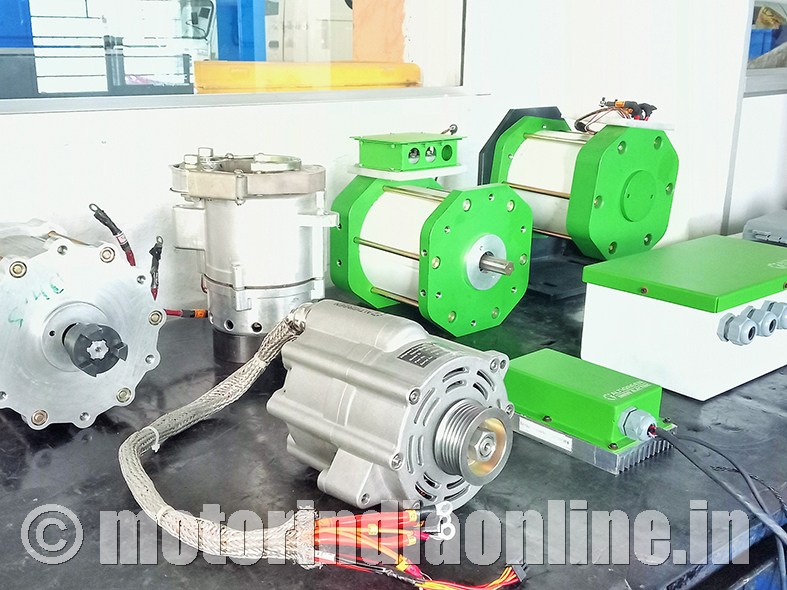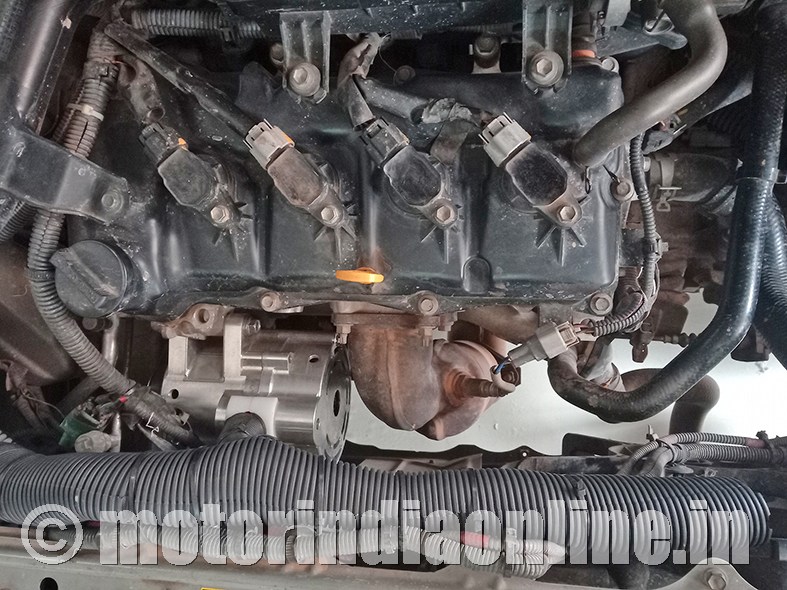Fuel consumption and emissions to be cut by over 20%
Founded in 2013, Altigreen develops proprietary electric vehicle (EV) powertrain technology specifically focused on emerging markets. A product variant developed by the company has seen significant commercial interest because of its ability to convert fossil fuel-based vehicle fleets into hybrid electrics. We spoke to one of the founding members, Dr. Amitabh Saran, CEO, Altigreen Propulsion Labs, on the various aspects of the company technology.

Edited excerpts:
Give us a brief background about Altigreen and how long have you been into the business.
Along with Dr. Lasse Moklegaard, a PhD in control engineering, Dr. John Bangura., a PhD in electro-magnetic, and Mr. Shalendra Gupta, an IIM (A) veteran and myself, Altigreen was founded in 2013. The genesis of the idea came to me when in 2011 the Toyota Prius Hybrid, priced at about Rs. 32 lakhs, was launched. We felt it was way out of the budget for majority of vehicle buyers in India and hence wanted to build a fuel saving solution accessible to the masses of the developing countries at an affordable price. At the same time, most of the hybrids available in the market were suited to the US and European drive cycles, with their hybrid action being triggered once they have crossed a certain speed threshold. However, in India and other developing countries, such speeds are seldom reached on the heavily congested roads.
Another uniquely Indian (perhaps true for a lot of the emerging economies of the world) thing is the lack of not just charging infrastructure for electric / plug-in hybrid vehicles, but the fact that over 80% of the grid power comes from coal, oil and gas (fossil fuel). In other words, it would be incorrect to say that electric vehicles are green until more renewable sources are used. Thus, I thought of working on electrified powertrains for vehicles that don’t need to be charged by the grid.
How did you execute it, and is the product available for commercial use in the market?
Altigreen has created significant IP in electric powertrains, including a low-cost retrofit system – HyPixi – that transforms fossil fuel-based vehicles into hybrid electrics. We started commercial sales of its electric powertrain, HyPixi, a few months back. This technology can convert in-use fossil fuel-based vehicle fleets into hybrid electrics, increasing fuel efficiency by over 20% and reducing emissions by similar amounts. We have already received preliminary orders from different commercial fleets and are in the process of servicing these customers. Our company has forged partnerships with different OEMs, developing electric powertrains in different vehicle segments, including auto-rickshaws, cars and farm equipment. Electric / hybrid vehicles with these powertrains are expected to be launched in the market in the next 18-24 months.
You claim to reduce fuel cost or increase fuel efficiency by nearly 20-30 per cent. Please share details about the technology that enables these results. Please present the testing and validation that has been done to support your claims, either with the testing agencies (like ARAI) or with the test trials done for OEMs, private fleet operators, etc.
Yes! HyPixi is a fit & forget torque-assist, regenerative electric system. These powertrains generate electricity through a technology called regenerative braking, a concept used in full hybrid vehicles as well. When the brakes are applied in a normal vehicle, the kinetic energy of the vehicle is lost in the form of friction at the brake pads. Regenerative technology prevents the loss of this energy. The energy harnessed is then used by Altigreen’s powerful motor generator system to assist the engine, thereby reducing fuel consumption and exhaust emissions.
The technology has been certified by both ARAI and iCAT, compliant with the CMVR rules in India. It has been applauded by experts all across the globe. We have filed nine patents for our technology across 60+ countries, four of which have already been granted in the US and more in India, Sri Lanka, Bangladesh, Philippines and Australia and have won several national and international awards for its innovative technology.
Is the Altigreen solution a viable option for a fleet operator in CVs (who looks for Total Cost of Ownership) or an end-user in passenger-cars (who looks for mileage), who also have an alternative to go for CNG or LNG? How much would a retro-fitting cost depending on different vehicle applications?
We have developed electric powertrains of different sizes, ranging all the way from 1 kW to 50 kW. All our products are completely indigenously developed, designed and manufactured within India. Hence, Altigreen will provide a completely home-grown platform to the country for this huge transition to carbon-free transportation. These solutions are available for different vehicle types and can be fitted in their current form into auto-rickshaws, commercial and passenger cars, LCVs and tractors.
While commercial fleet operators are attracted towards our product due to the direct benefits (reduced fuel costs, reduced maintenance of consumables, etc.), private customers are more gung-ho about the indirect benefits (reduced exhaust emissions, reduced fuel imports for the country, no standing in queues as for CNG, etc.). A typical fitment for 4-wheelers costs Rs. 60,000 – Rs. 90,000.
We understand Altigreen has formed a partnership with Greaves Cotton. What benefits would you offer Greaves and how does the partnership help your business?
We had entered into a strategic partnership with Greaves Cotton in October 2017 as a supplier of a range of clean energy powertrains for 3-wheelers and micro 4-wheeler commercial vehicles. We are building a low cost partial electrification solution which will deliver significantly improved fuel efficiency and reduced emissions as a retrofit solution for the existing petrol / diesel 3-wheelers.
Also, during the Auto Expo 2018 we partnered with Greaves to showcase for the first time in India high-performance electric powertrains. This power train is an ultra-light compact high output induction motor developed by us. The motor is controlled by a compact high performance custom designed motor controller working with lithium ion batteries. Apart from this, we, along with Cotton Greaves, also displayed at Auto Expo a futuristic three-wheeler EV concept which combines a well-styled, lightweight body with advantages of the Greaves Altigreen drivetrain technology.
As your technology becomes more used across markets, the serviceability aspect becomes critical. What kind of service infrastructure do you have in place to support to a vehicle operator with maintenance and servicing of both OE-fitments and retro-fitted kits?
We recognize the service aspect, and that is the primary reason why we have started the sales of our HyPixi system only with fleets, including cab drivers, employee transportation companies, FMCG distribution, etc. We plan to launch the product for private customers once we have increased the outreach of our installation and service centres. We are partnering with multi-brand service centres for the same. We already have agreements signed with two such partners who have a pan-India presence, who we are training currently.

